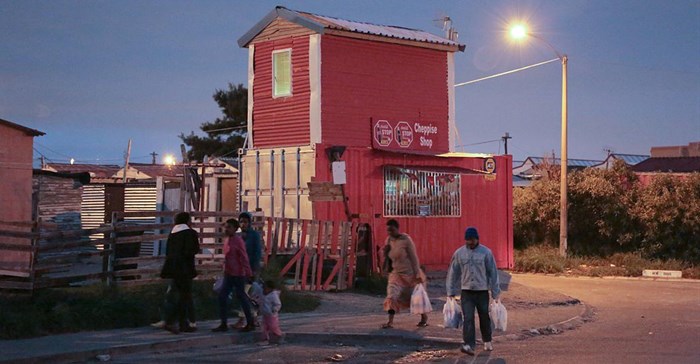
Informal retailers are the backbone of the township economy, bridging many social and economic gaps in the country. They make goods and services accessible to people in the townships and in rural areas. Rent is either very cheap or free, as most informal retailers operate from their homes or pavements, and some do house calls.
In its Gauteng Township Economy Revitalisation Strategy, the Gauteng Enterprise Propeller identified a number of barriers that are common to all township enterprises. Top of these is access to capital, including grants and loans. The others are:
• Lack of access to markets, including preferential procurement;
• Lack of access to skills development;
• Lack of access to enterprise development to support business skills and co-op development skills; and
• The domination of certain economic sectors
An informal trader, Boitumelo Mogohu, who runs a spaza shop in Kuruman, Northern Cape, is of the opinion that, while the regulation of the sector is a discussion point for all involved stakeholders, there needs to be an in-depth discussion of the broader definition of ‘an informal business’.
Having started his business with his own funding, he says that it is easier to operate unregulated in South Africa – primarily because regulation adds more red tape and administration, and demands financial commitments from a sector that already feels neglected. “We need a unique policy change that would speak to the realities of South African entrepreneurs, particularly those in the informal sector,” says Mogohu.
He adds that other major challenges faced by traders were access to supply chain networks and the emergence of foreign-owned operations that make it difficult to compete in this market. Sourcing goods faster and more cost-effectively would give traders the key to survival in the informal business.
Tebogo Mamabolo is a street vendor selling snacks near factories in Pretoria’s industrial area. She shares that her biggest stress is the constant fear of being removed by the police, together with the lack of job security in the sector. She explains that, in her line of work, your earnings are too volatile; and this creates a barrier to accessing the products and services offered by other sectors, such as home loans or Covid-19 relief funds.
Both traders argue that the solution to their challenges lies in consultations between all stakeholders in industry. They agree that it cannot be left to government alone to come up with solutions.
According to research conducted by the Sustainable Livelihoods Foundation, there has been an increase in the number of informal businesses owned and operated by foreign nationals in recent years. This has given rise to a new trend: conflict between local and foreign township traders.
While this conflict appears to be sporadic, it poses a threat to the entrepreneurial cohesion of local communities. Mogohu agrees with this sentiment, adding that the imbalances in the broader socio-political landscape are creating extra pressure in a space where entrepreneurs should be joining hands.
The drive to uplift the informal economy has seen many great partnerships formed between larger formal retailers and smaller traders, as informal retailers source their products primarily from formal wholesalers. The involvement of big corporate, and their willingness to uplift the sector, is an opportunity for collaborative partnership that would create a supportive retail ecosystem.
In this era of rapid advances in technological development, technology can breathe new life into the informal sector. And, in some instances, it has. Electronic payment devices, which were previously found only in the larger formal retailers, are now available for use by informal traders as well. In the past year alone, Yoco, a local fintech company offering cashless payment solutions, has reported growth because of an additional 40,000 new merchants who use its card payment machines.
In the economic landscape of South Africa, while the informal retail sector offers a platform for entrepreneurs, the barriers and the risks to viability are ever-present. The global Covid-19 pandemic has brought additional disruption to the sector. With this, opportunity lies in the ability of informal retailers to be heard, not only for the benefit of shop owners, but also for the communities they serve.
In the meantime, the informal sector remains resilient as it continues to gain momentum in South Africa and globally.
“In the end, all of us must be proactive in the success of this sector of the economy. Our goal in business should be to gradually uplift small traders and give them an opportunity to be sustainable. So, we should ask ourselves, how do we want to be known as a country?” (Boitumelo Mogohu).